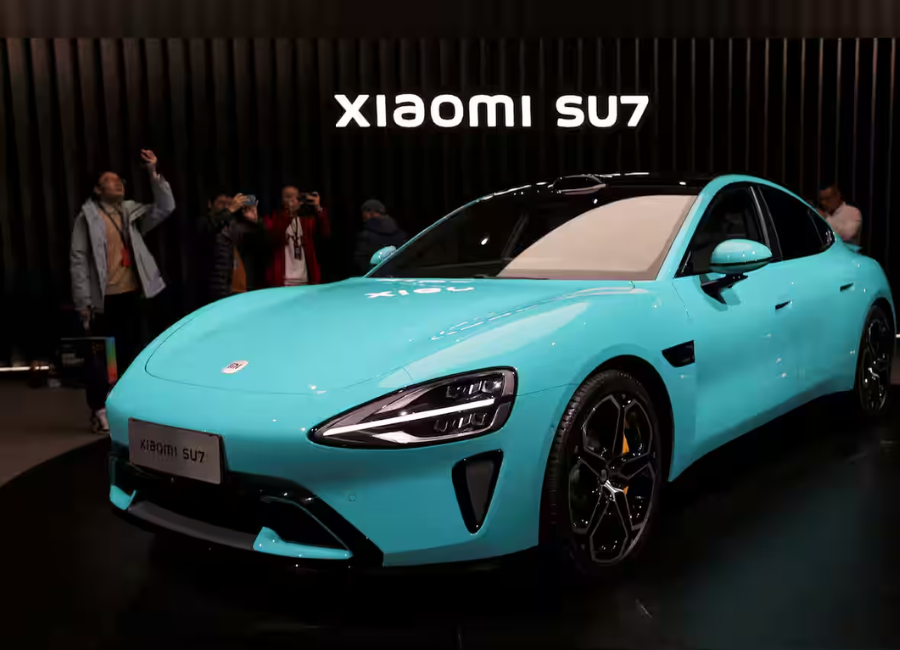Xiaomi’s Market Value Soars with SU7 Electric Vehicle Launch
Xiaomi’s recent launch of the SU7 electric vehicle has sparked significant investor interest, driving up the company’s market value by a staggering $7.6 billion. Despite this impressive surge, analysts project that Xiaomi may face substantial losses for each car sold.
The unveiling of the SU7 has propelled Xiaomi’s stock, with shares surging by as much as 16% on Tuesday. This surge marks the highest level since January 2022, following the debut of Xiaomi’s sporty electric vehicle, which drew inspiration from Porsche in terms of design.
The SU7, aptly named Speed Ultra 7, enters the competitive Chinese electric vehicle market with an enticing price tag, starting at under $30,000 for the base model. This pricing strategy positions the SU7 as a direct competitor to Tesla’s Model 3 in China, offering consumers an affordable option in the EV segment.
Despite the challenging landscape of the Chinese auto market, characterized by intense price competition and slowing demand, analysts believe that Xiaomi has several advantages over other EV startups. With its substantial financial resources and expertise in smartphone technology, Xiaomi is well-equipped to leverage smart dashboard features, a key selling point for Chinese consumers.
The strong interest in the SU7 is evident from the substantial pre-order numbers, with Xiaomi reporting 88,898 pre-orders within the first 24 hours of sales. However, Xiaomi has tempered expectations by acknowledging that it anticipates losses on the SU7. Analysts predict that these losses could be significant, with projections indicating a potential net loss of 4.1 billion yuan ($566.82 million) based on an estimated volume of 60,000 units sold this year. On average, this translates to a loss of 68,000 yuan ($9,400.96) per car.
Despite the potential financial challenges, the launch of the SU7 marks a significant milestone for Xiaomi and its founder, Lei Jun. Lei Jun announced Xiaomi’s entry into the electric vehicle market in 2021, committing to invest $10 billion in the auto business. For Lei Jun, this venture represents the culmination of his entrepreneurial journey, positioning Xiaomi as a key player in the evolving EV landscape.
Following the SU7 launch, other Chinese EV brands have responded with price cuts and subsidies for comparable models. Additionally, the Chinese EV market is expected to become even more competitive, with an estimated 240 EV models competing for sales in the 200,000 to 300,000 yuan segment in 2024, representing a significant increase from previous years.
In summary, while Xiaomi’s SU7 electric vehicle launch has generated excitement and boosted the company’s market value, it also presents financial challenges. Despite the projected losses, Xiaomi’s foray into the EV market underscores its commitment to innovation and its ambition to become a major player in the automotive industry.






